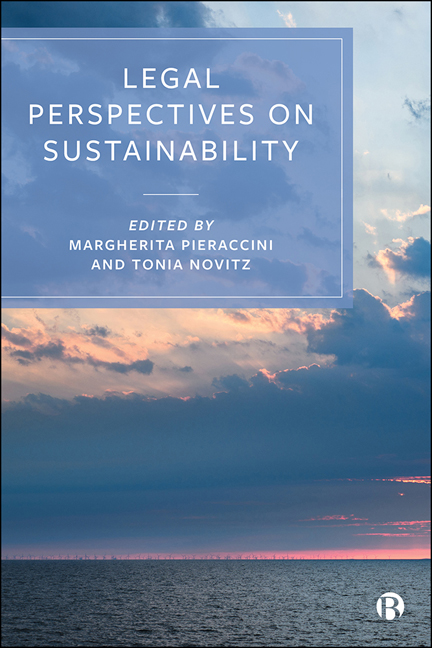1 - Sustainability and Law: A Historical and Theoretical Overview
Published online by Cambridge University Press: 03 March 2021
Summary
Introduction
This chapter points to the ways in which discussions regarding sustainability and sustainable development have shifted over time and proposes theoretically informed ways forward. Our historical timeline begins in the 1970s with what looks like the emergence of discrete atomistic strands of concern. One focus of attention for the international community was economic ‘development’, namely the prevention of poverty, in the context of integration into a global capitalist economy. The other policy initiative concerned the environment and acknowledged the need for international cooperation to prevent pollution and preserve biodiversity and ecosystems, evolving into current efforts to also tackle climate change. We address the evolution of these different trajectories regarding sustainable development and how they interact.
However, we see the historical narrative as going beyond a simple tale of tension and reconciliation. For to argue that sustainability or sustainable ‘development’ is all about economic objectives or even environmental aims is problematic. What may be more accurate is that we have witnessed a growing acknowledgement that both economic and environmental development need to be ‘sustainable’, that is, durable and long lasting. Tracing this change, we see an emerging recognition that social policy is vital to the achievement of both economic and environmental goals; hence the arrival of what came to be described as ‘three pillars’ of sustainability: economic, environmental and social. For critical environmental lawyers, this may seem a modernist and still fractured approach to sustainability, which would ideally be viewed as more holistic. For those engaged in social policy, such as labour lawyers, there has been frustration that labour standards and other aspects of social policy are then viewed by many as protected in a sustainability frame only to the extent that they are seen to connect to (and are subsumed by) the dominant strands of economic and environmental sustainability. Holism then has its dangers if it obscures the prioritisation of some objectives over others.
We argue that a historical account can offer more than a tired rehearsal of the various international and European debates that have occurred over the years and the concrete legal instruments they generate.
- Type
- Chapter
- Information
- Legal Perspectives on Sustainability , pp. 9 - 38Publisher: Bristol University PressPrint publication year: 2020



